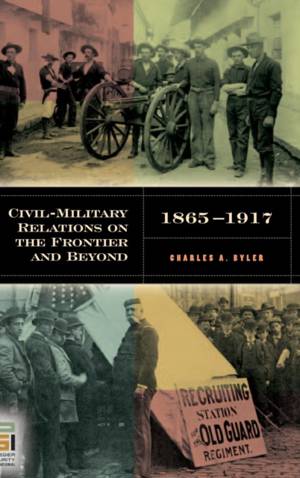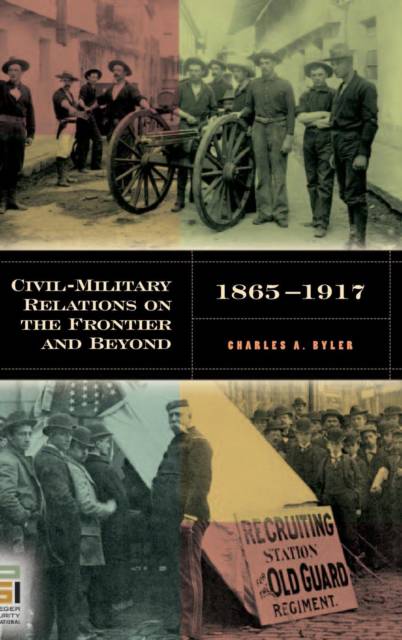
- Retrait gratuit dans votre magasin Club
- 7.000.000 titres dans notre catalogue
- Payer en toute sécurité
- Toujours un magasin près de chez vous
- Retrait gratuit dans votre magasin Club
- 7.000.0000 titres dans notre catalogue
- Payer en toute sécurité
- Toujours un magasin près de chez vous
Description
Civilian control of the military is one of the cornerstones on which America is built, extending back even before the founding of the nation. In this volume, Byler examines the development of civil-military relations from the end of the Civil War until the start of the First World War, looking at what happened and why. During this period, an initially small, poorly funded, and often unpopular military continued its traditional subordination to civilian authority despite the dissatisfaction of many of its leaders. This volume explores why this was the case. It then demonstrates that even after the military achieved victory over Spain and began to rule overseas colonial possessions, giving it new prestige and influence, the experience of the previous decades ensured that the traditional principle of civilian control remained strong.
Significant tensions developed between civilian and military leaders as the small and poorly-funded military was sent on missions in the Reconstruction South and the Indian West, into overseas wars against the Spanish and the Filipino nationalists, and on interventions in the Caribbean and Central America. Nonetheless, officers continued to obey civilian authorities because of a developing professional ethos that emphasized the tradition of subordination to civilian leaders and the disengagement of the military from politics. Even as the military gained the size, strength, and prestige to challenge civilian control, it did not do so directly. Instead, it became adept at working within civilian institutions, forming alliances with leaders inside and outside government to shape the policies it wanted.Spécifications
Parties prenantes
- Auteur(s) :
- Editeur:
Contenu
- Nombre de pages :
- 224
- Langue:
- Anglais
- Collection :
Caractéristiques
- EAN:
- 9780275985370
- Date de parution :
- 30-06-06
- Format:
- Livre relié
- Format numérique:
- Ongenaaid / garenloos gebonden
- Dimensions :
- 166 mm x 243 mm
- Poids :
- 508 g

Les avis
Nous publions uniquement les avis qui respectent les conditions requises. Consultez nos conditions pour les avis.






